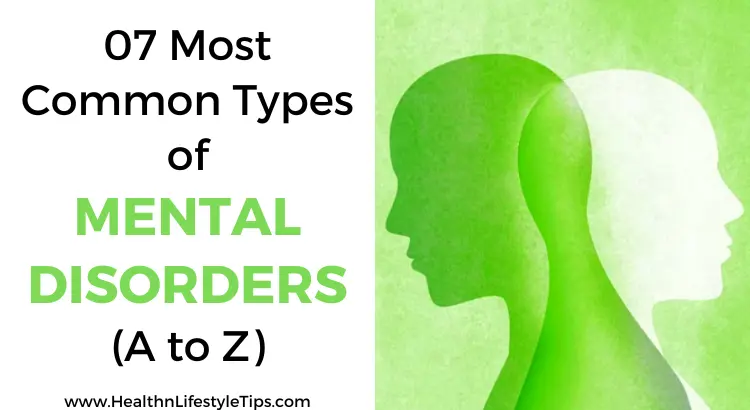A mental disorder is a total characterized by a clinically significant disturbance in individual cognition, emotional regulation or any behaviour. In the California rehab, they will help to come out from the issues. It is usually associated with distress or impairment in important areas of the functions.
Many different types of mental disorders are present in mental health conditions. The latter is the broader term covering the mental disorders, psychosocial disabilities and mental states associated with significant distress, impairment in functioning or risk for self-harm.
The fact sheet focused on the mental disorders that are described by the international classification of diseases.
Nine hundred seventy million people in that world were living with mental disorders, with anxiety and depressive disorder as the most common.
The number of people living with anxiety and depressive orders rose significantly because of unnecessary reasons.
Anxiety Disorder
Anxiety is a very normal emotion among people as everyone feels anxious at some point in their life. 301 million people were living with an anxiety disorder, including 58 million children and adolescents.
An anxiety disorder that is characterised by excessive fear and worries and behavioural disturbance. It is a generalised anxiety disorder characterised by excessive worry.
Panic attacks characterise a panic disorder; a social anxiety disorder is characterised by excessive fear and worry in social situations, and separation anxiety disorder is characterised by excessive fear or any anxiety about separation from the individual to whom the person has an emotional bond.
People can get relief by doing meditation and then staying fine in their lives. Most people with anxiety disorder go for counselling and take medicine.
Related Post: 5 Proven Ways to Help You Deal with Your Anxiety
Depression
Depression is different from the usual mood fluctuation and the short-lived emotional responses to challenges in everyday life. As well as you face problems doing day-to-day activities and it requires a long time to cure depression.
In a depressive episode, the person experiences a depressed mood in the feeling sad, irritable, empty or any loss of pleasure or interest in the activities for the day, near the present day or for two weeks.
The symptoms that are present then include poor concentration, feelings of excessive guilt or low self-worth, and hopelessness in the future.
Rehab is present, which will help to deal with depression. Depression is not a normal part of life so you shouldn’t have to take it lightly.
Bipolar Disorder
46 million people experience bipolar disorder. People with bipolar disorder experience alternating depressive episodes with the period of manic symptoms.
During a depressive episode, the person experiences a depressed mood that is the feeling sad, irritable, empty or any loss of pleasure or interest in activities for most of the day, nearly every day.
The manic symptom includes euphoria or irritability, which increases activity or energy. The other symptoms are increased talkativeness, racing thoughts, and increased self-esteem.
Even though bipolar disorder is a persisting condition. It can be treated with psychotherapy and medication.
Post-traumatic Stress Disorder
The prevalence of PTSD and other mental disorders is high in conflict-affected settings. PTSD will develop from exposure to an extraordinarily threatening or horrific event or series the events. It is characterized by re-experiencing the traumatic event or any event in the present.
Avoidance of the thoughts and the memories of the event, avoidance of the activities, situations or people reminiscent of the event.
The persistent perception heightens the current threat. In PTSD suicidal thoughts are very common. If you have a friend who is going through the same, get help right away.

Schizophrenia
Schizophrenia affects approximately 24 million people, and it is very dangerous. Schizophrenia is characterised by significant impairment in perception and change in total behaviour.
The symptoms include persistent delusions, disorganised thinking, highly disorganized behaviour or any extreme agitation. People suffering from schizophrenia may experience persistent difficulties with cognitive functions.
Two out of three people suffering from psychosis in the world do not receive professional mental health treatment. Excessive use of cannabis is connected with a hoisted risk of the disorder.
Eating Disorder
Eating disorders with anorexia nervosa and bulimia nervosa involve abnormal eating and preoccupation with the food that is prominent body weight and shape concerns. The symptoms that result in the significant impairment of functions.
The Nervosa often has onset during adolescence or in early adulthood and it is associated with premature death, medical complication or case of suicide. Individuals with Nervosa are at a significantly increased risk for substance risk for usage, suicidality and health complications.
Even though eating disorders affect people of any gender they are growingly common in men. Eating disorder treatment may include a fusion of multiple therapies.
Disruptive Behaviour and Dissocial Disorder
This disorder, also known as defiant disorder worldwide, is one of the two disruptive behaviour and dissocial disorder. Disruptive behaviour and dissocial disease are characterised by persistent behaviour problems like persistently defiant or disobedient behaviour that persistently violates the basic rights of others.
Children with oppositional defiant disorder display these symptoms like arguing about unimportant things, being easily annoyed by other people, resentful more often than others their age.
This behaviour can be difficult to diagnose and very challenging to live with. Parents should not delay and ask for mental health doctor assistance.
